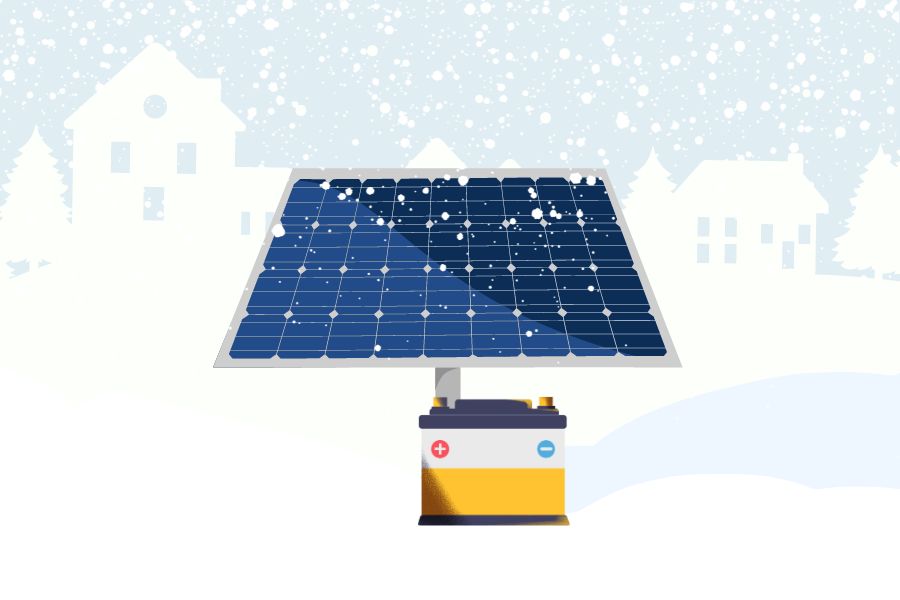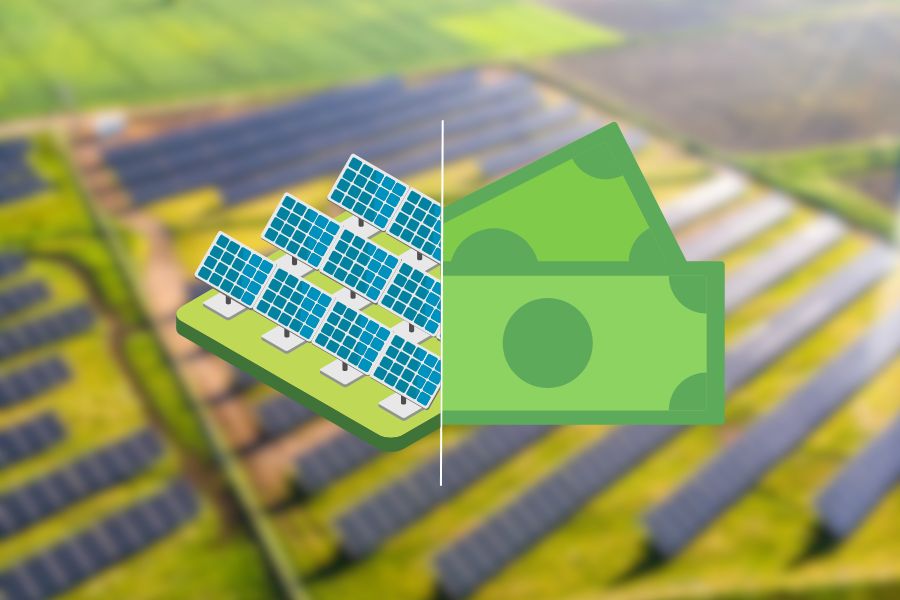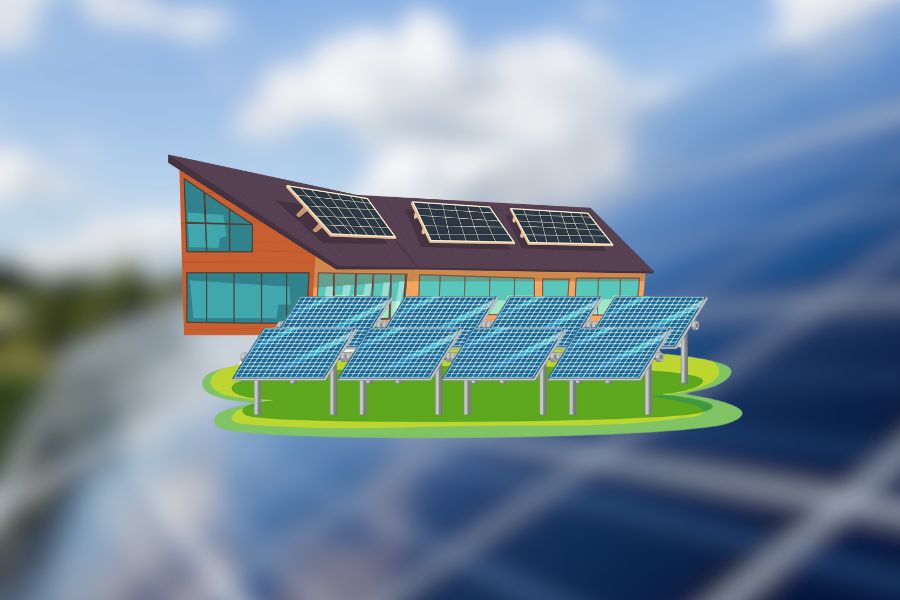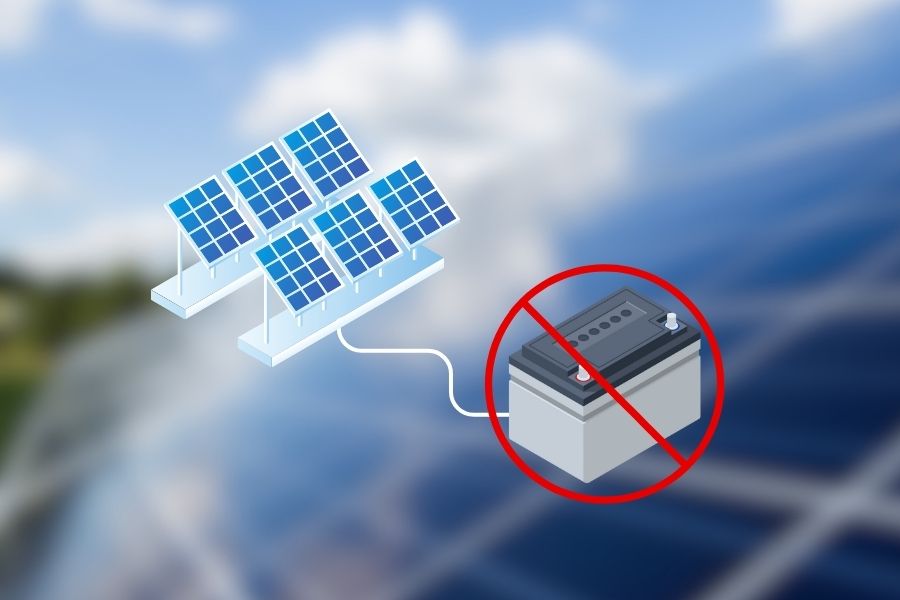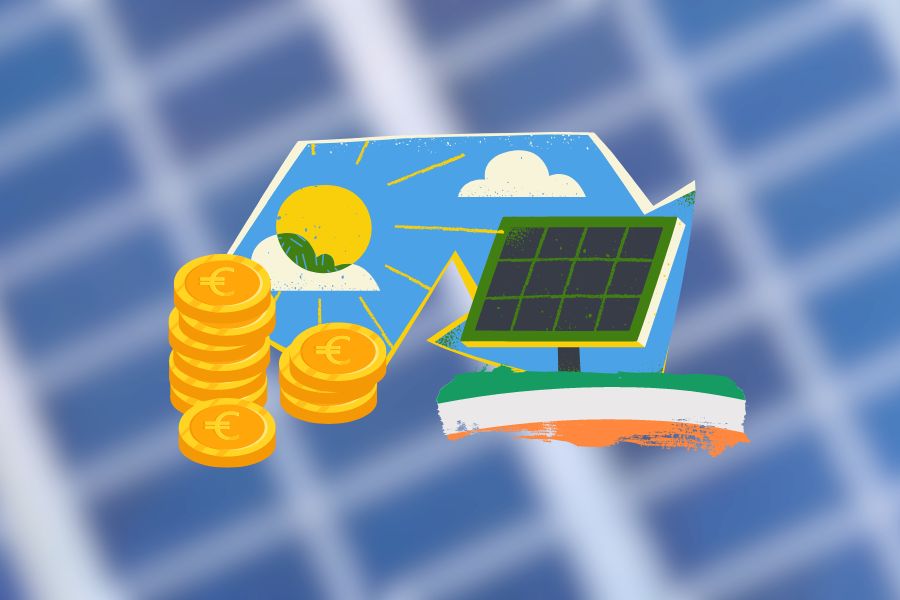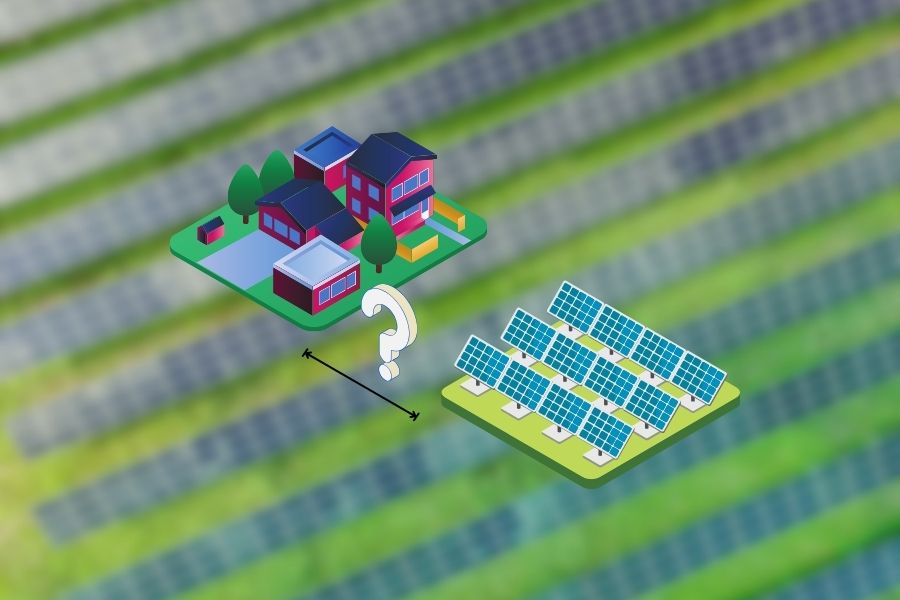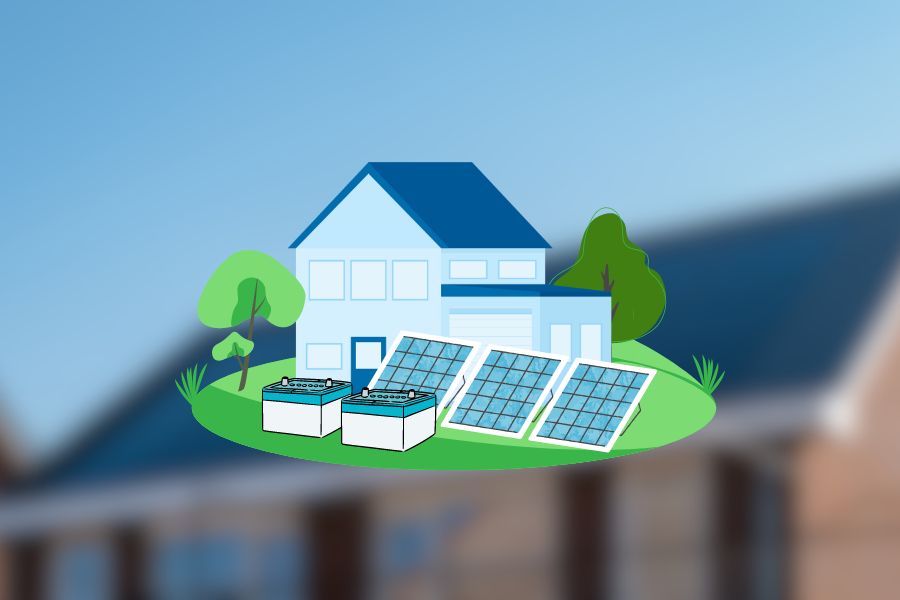In Ireland, where overcast skies and limited sunlight often characterize the weather, it’s natural to question the efficiency and viability of solar panels in such conditions. So, do solar panels work in winter in Ireland?
Despite the colder, darker winters of Ireland, solar panels indeed continue to function, sometimes even more efficiently. Contrary to popular belief, colder temperatures can enhance solar panel performance by reducing electrical resistance and allowing smoother electricity flow.
While reduced daylight and overcast skies in winter can impact solar energy production, technological advancements, and strategic solar panel positioning have minimized these effects.
Furthermore, pairing solar panels with energy storage systems ensures a consistent, sustainable power source even during periods of low sunlight. So, despite Ireland’s chilly winter months, solar panels remain a viable, eco-friendly energy option, offering year-round benefits.
Solar Panel Performance in Colder Weather
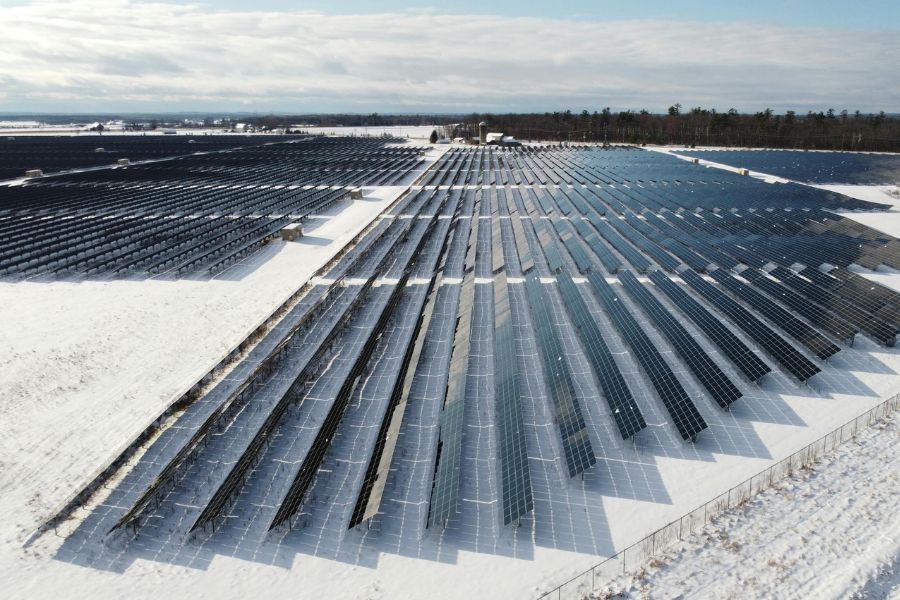
Solar power performance in colder weather is a common concern for those considering solar energy. While it’s true that solar panels rely on sunlight to generate electricity, colder temperatures can enhance their efficiency.
Cold weather helps reduce the resistance in the electrical circuits, allowing electricity to flow more smoothly. Additionally, snow can reflect sunlight onto the panels, boosting their output.
However, shorter daylight hours and overcast skies during winter can still slightly impact overall energy production.
Nevertheless, advancements in solar technology and optimal solar PV panel positioning can mitigate these effects, making solar panels a viable option even in colder climates.
The Impact of Temperature on Solar Panels in Ireland
The impact of temperature on solar panels in Ireland is an important consideration when evaluating their performance. While it’s commonly believed that solar panels require hot and sunny weather to operate optimally, the reality is more nuanced.
Solar panels can exhibit improved efficiency in colder temperatures due to their interaction with light. The solar cells function more efficiently when kept cool, as lower temperatures reduce resistance and allow for better electron flow. Solar panels can still generate significant electricity even in Ireland’s cooler climate.
However, extreme cold temperatures can pose some challenges. Frost or snow accumulation on the panels can temporarily hinder their performance, as it blocks sunlight absorption. Fortunately, modern solar panel designs often incorporate self-cleaning mechanisms or tilted surfaces that aid in shedding snow and ice.
It’s also worth noting that while temperature affects the installed solar energy system performance, it is not the sole determining factor. Even on overcast days, the available sunlight plays a crucial role in generating electricity.
Ireland’s latitude means that it receives less direct sunlight than sunnier regions, but advancements in solar technology have made it possible to capture and convert even diffuse sunlight effectively.
Furthermore, proper panel positioning and angle optimization can help maximize energy production in Ireland’s specific climate. By adjusting the tilt and orientation of the panels, they can capture more sunlight throughout the day, compensating for shorter daylight hours during the winter months.
Solar Panels and Energy Storage in Winter
Solar panels face challenges in winter due to reduced daylight hours and overcast skies. That is because energy storage systems play a vital role in maximizing the benefits of solar power to overcome this.
By coupling solar panels with battery storage, excess energy generated during sunnier periods can be stored and used during low sunlight conditions. It allows for a more consistent and reliable energy supply throughout the day and even during nighttime.
Energy storage technology has advanced significantly, making storing surplus energy for more prolonged durations possible. Integrating solar panels with energy storage systems in winter enhances self-sufficiency, reduces reliance on the grid, and ensures a continuous and sustainable power source.
How Much Does Solar Panel Installation Cost in Ireland During Winter?
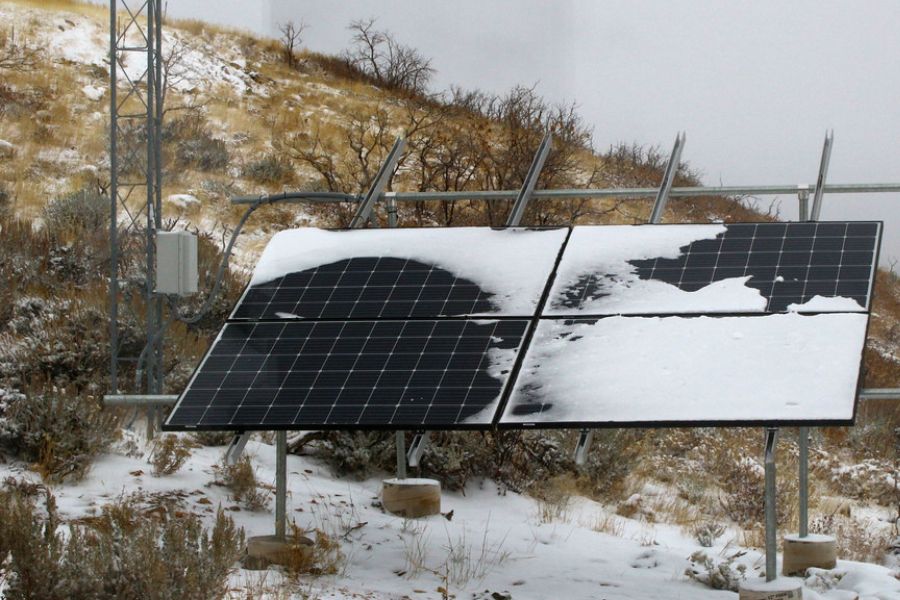
Solar panels cost in Ireland ranges from €4,000 to €8,000 for a residential system depending on how many solar panels. However, it’s important to note that these figures are approximate and can vary based on individual circumstances and specific project requirements.
Do Solar Panels Work in Winter? The Short Answer
Yes, solar panels do work in winter. While reduced daylight hours and overcast skies may affect their efficiency slightly, solar panels can still generate electricity during winter.
Colder temperatures can enhance their performance. Lower temperatures reduce resistance in the electrical circuits, allowing for better electron flow and reduced energy bills.
Do Solar Panels Require More Maintenance in Cold Weather?
Solar panels generally require minimal maintenance regardless of the weather conditions, including cold weather. While colder temperatures may bring some challenges, they do not significantly increase the maintenance requirements for solar panels.
The design of solar panels is such that they can withstand various weather conditions, including cold temperatures. Most modern solar panels are durable and weather-resistant. They can resist snow loads and freezing temperatures without sustaining damage.
However, it’s important to note that if snow or ice accumulates on the surface of the panels, it can temporarily reduce their efficiency. In such cases, we recommend you allow natural melting or safely remove the snow/ice to restore optimal performance.
Does Rainwater Damage Solar Panels?
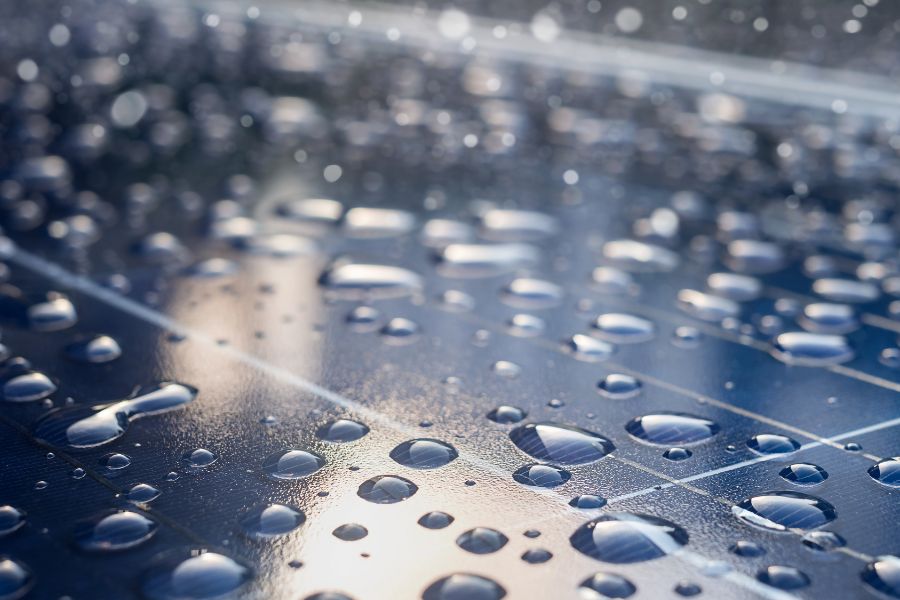
Rainwater does not typically damage solar panels. On the contrary, rain can benefit solar panel performance. It helps to naturally clean the surface and remove dust, dirt, and debris that may accumulate over time. Rainwater is generally considered clean and does not contain substances that can harm the panels.
Solar panels are designed to be weather-resistant and can withstand rain, snow, and other environmental elements. In addition, they consist of protective materials such as tempered glass and durable frames. They shield the internal components from moisture damage.
However, extreme weather conditions like hailstorms or heavy impacts can potentially cause physical damage to solar panels. In such cases, it is recommended to have the system inspected by a professional to assess any potential issues.
Regular maintenance and cleaning of solar panels are still recommendable to ensure optimal performance. While rainwater does not harm solar panels, periodic cleaning can help remove stubborn dirt or debris. In addition, rain alone may not wash away, thus maintaining efficiency over time.
Does the Solar System Need Maintenance in Winter?
Solar systems generally require minimal maintenance during winter, but a few tasks can help ensure optimal performance. First, monitor snow accumulation on the panels, as a thick layer can temporarily reduce output.
Gently remove snow using a rake or seek professional assistance. Inspect the system for damage caused by hail or strong winds, looking for cracks or loose connections.
Cleanliness is essential, so regularly check for dirt or debris on the panels and clean them as per manufacturer guidelines. Additionally, monitor the inverter’s performance as it converts the electricity generated by the panels. Look for errors or unusual behavior.
By performing these tasks, you can maintain the efficiency of your solar system during winter. Consult a professional if you have concerns or need assistance. Remember to prioritize safety while working with your solar system.
How Much Electricity Will Solar Panels Produce in Winter?
During winter, the electricity production of solar panels can be estimated based on the given information. On average, you can expect around one hour of total power output during the depths of a wintery month.
Considering a typical 2kW system working at peak efficiency, it should be capable of generating up to 1,700kW units of electricity per year. Similarly, a more extensive 4kW system can provide as much as 3,400kWh of solar energy annually.
However, it’s important to note that these figures are estimates, and electricity production may vary depending on specific conditions. Such conditions include sunlight availability and weather patterns during the winter season.
At What Temperature Do Solar Panels Stop Working?
Solar panels do not stop working at a specific temperature. Therefore, solar panels can still generate electricity even in cold temperatures.
While extreme heat can slightly reduce their efficiency, the decrease in performance is usually minimal and within the expected range. Solar panels can withstand a wide range of temperatures and continue operating effectively.
The actual temperature at which solar panels might stop working would typically be far below the freezing point of water. Manufacturers conduct rigorous testing to ensure solar panels can handle extreme hot and cold temperatures without significantly impacting functionality.
Can Solar Panels Crack With Cold Water?
Solar panels are durable and withstand various weather conditions, including exposure to cold water. Generally, hard water alone is unlikely to cause solar panels to crack or sustain damage. That is because solar panels consist of tempered glass, resistant to thermal expansion and contraction.
However, extreme temperature variations combined with cold water can create stress on the panel surface.
In the summer, solar PV converts sunlight to electricity, and subjecting it to cold water can lead to a phenomenon known as “thermal stress.” In addition, the inherent brittleness of glass, a common component of solar panels, may not be able to accommodate rapid temperature changes effectively. As a result, it results in potential cracking.
Rapid temperature changes or thermal shocks could cause thermal stress and increase the risk of cracking. It includes pouring freezing water on a hot panel. Therefore, avoiding such sudden temperature changes and carefully handling the panels is advisable.
Conclusion – Do Solar Panels Work in Winter in Ireland?
So, do solar panels work in winter in Ireland? The answer is a resounding yes! While the colder weather and shorter daylight hours may slightly impact their performance, solar panels can still generate electricity even in winter.
Cool temperatures can even enhance their efficiency. So, don’t let the Irish winter deter you from embracing solar energy. With advancements in technology and proper panel positioning, you can harness the sun’s power and enjoy the benefits of renewable energy all year round.
Embrace the greener side of winter with solar panels and take a step towards a more sustainable future in Ireland!
